Spring’s Early Arrival Poses Deadly Threat to Migrant Birds
Biologists identify another tale of conflict as African birds compete with European natives for resources in a fast-warming world.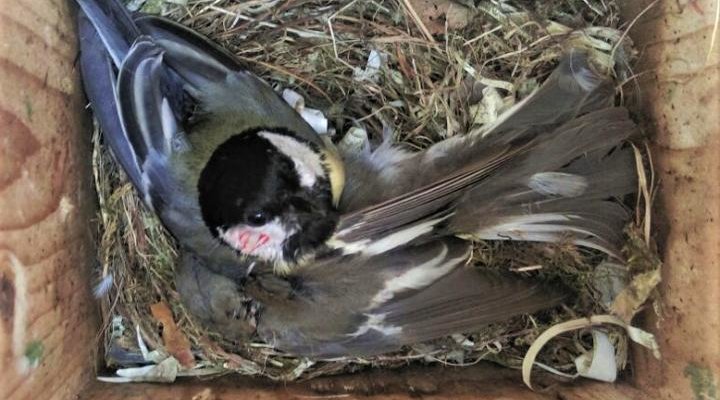 A great tit preys on a pied flycatcher. (Maurice van Laar)
A great tit preys on a pied flycatcher. (Maurice van Laar)
Biologists have identified another tale of conflict and bloodshed as African migrant birds compete with European natives for resources in a fast-warming world.
Death rates among male pied flycatchers – African carnivores that migrate each spring to the Netherlands to breed – have risen in the 10 years between 2007 and 2016, as winters have warmed and springs have arrived earlier.
And in some years, almost one in 10 of the male migrant flycatchers has been found pecked to death by great tits that have already taken up residence in nest boxes that both species favour.
Jelmer Samplonius, then of the University of Groningen and now at the University of Edinburgh in Scotland, and a colleague report in the journal Current Biology that they became interested in the competition between the migrant Ficedula hypoleuca and the European garden bird Parus major because both compete for the same resources.
These are the spring explosion of the caterpillar population, and the nest boxes established by householders who like to encourage wildlife. Both species try to time their breeding calendar to coincide with the arrival of plentiful, nourishing food for their chicks, and both species have become accustomed to colonising available nest boxes.
“When a flycatcher enters a box with a great tit inside, it doesn’t stand a chance”
But, the scientists say, climate change driven by global warming, in turn fired by profligate combustion of fossil fuels that increase the ratios of greenhouse gases in the atmosphere, has brought new challenges.
Climate change poses a hazard for many species that are precisely adapted to their immediate environment.
They become more vulnerable as their breeding timetable goes out of synchrony with the food supply, or they become more at risk from predation in once relatively secure nesting sites in the rapidly warming Arctic.
The northern hemisphere spring now arrives much earlier. Some migrant species have been able to adapt, and the great tit in particular has shown itself to be resourceful and ready to cope with new challenges.
It now gets to the nesting sites to breed on average 16.6 days earlier than the pied flycatcher, which winters in West Africa, and therefore has no way of knowing the right moment to head for a breeding site so far to the north in Europe.
Growing violence
And the late arrival of the African competitor has meant a marked increase in conflict. When the researchers checked the nest boxes, they counted 86 male flycatchers dead from injuries delivered by great tits, and two killed by the smaller species, the blue tit.
“The dead flycatchers were all found in active tit nests and had severe head wounds, and often their brains had been eaten by the tits,” they write.
“This could exhibit a significant mortality cause on male pied flycatchers in some years, with up to 8.9% of all males … known to defend a nest box being killed in a single year.”
Some years there were almost no little feathered corpses: other years were marked by conspicuous slaughter, and the researchers put the variation in the kill count down to what they define as a problem of synchrony. Tits killed more flycatchers when the competitors turned up at the peak of the tits’ breeding season.
Powerful claws
“When a flycatcher enters a box with a great tit inside, it doesn’t stand a chance”, Dr Samplonius said. “The great tit is heavier, as the flycatchers are built for a long migration from Europe to Western Africa and back. Also, great tits have very strong claws.”
The finding doesn’t seem to mean that the flycatcher is in immediate danger of local extinction: the scientists say that most of the slaughter occurred among surplus males; those who turned up late were less likely to find a breeding partner, and more likely to die from competition with great tits.
A surplus of males acts as a “buffer” to protect the overall population. But in the long run, the flycatcher could lose the race for survival.
“If buffers are diminished,” the scientists write, “population consequences of interspecific competition may become apparent, especially after warm winters that are benign to resident species.”
Your support matters…Independent journalism is under threat and overshadowed by heavily funded mainstream media.
You can help level the playing field. Become a member.
Your tax-deductible contribution keeps us digging beneath the headlines to give you thought-provoking, investigative reporting and analysis that unearths what's really happening- without compromise.
Give today to support our courageous, independent journalists.

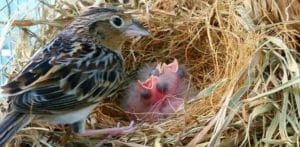

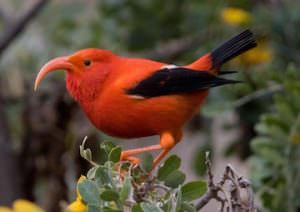

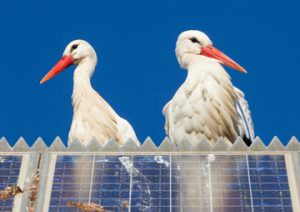
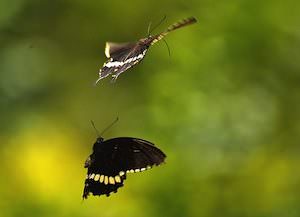


You need to be a supporter to comment.
There are currently no responses to this article.
Be the first to respond.